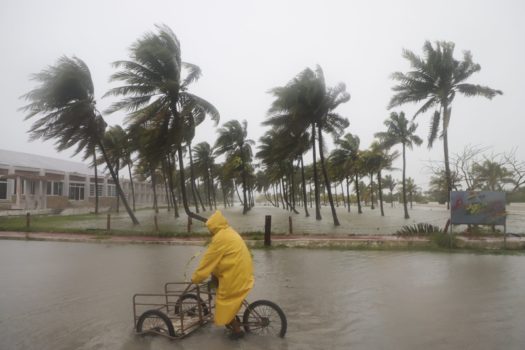(Elyse Apel, The Center Square) With early voting starting in North Carolina on Thursday of next week, the State Board of Elections moved quickly following the devastation of Hurricane Helene to help the hardest-hit counties prepare for voters.
Still, there are concerns from public policy groups about if the state’s measures are enough and if voters will still prioritize voting amid the storm recovery efforts.
“I have great sympathy for the people who are dealing with this,” Heritage Foundation voting expert Hans von Spakovsky told The Center Square. “I know it’s very important for them to get power back, to get homes repaired, to get food, to get water. I hope people also realize that in the midst of all that, if they can go vote, they really need to do that, because that’s also a really important right.”
North Carolina is squarely among the most toss-up of states for the presidential election. More than 7.7 million are registered, and 75% was the turnout in 2020 when Republican Donald Trump carried the state over Democrat Joe Biden by less than 75,000 votes of more than 5.5 million cast. The congressional representation in the districts hardest hit are Republican.
Von Spakovsky said it is important for polling locations to be quickly repaired, especially with any potential delays in the United States Postal Service.
“In the 2020 election, the U.S. Election Assistance Commission reported that about 43% of Americans cast their ballots through the mail,” he said. “That also means that it’s really important for election officials to get early voting sites open.”
At a press conference on Thursday afternoon, Karen Brinson Bell, executive director of the Board of Elections, reported that, before the hurricane, the 25 counties most affected by the storm had planned to open 80 early voting sites. When early voting begins on Oct. 17, which is next Thursday, 75 will open.
Protect Democracy, a nonpartisan organization dedicated to “defeating the authoritarian threat” put out a memo detailing the measures the Election Board could take to ensure voting continues.
It expressed concerns about “depressed turnout,” which has been seen in elections after other natural disasters, even when emergency election measures are taken.
“The expansion of early and mail-in voting did not offset this depreciation,” the memo stated. “Any emergency measures should be aimed at ensuring that all eligible voters can vote while minimizing the risk of delays in the post-election process.”
The state’s General Assembly and the Election Board have taken many measures, in conjunction with FEMA and other emergency services, to help voting go smoothly.
“The State Board of Elections, the county boards of elections and our many partners are doing everything possible to ensure you can vote in this important election,” Bell said at the press conference.
This includes multiple options for returning absentee ballots, replacement polling sites, and more. The board is also updating NCSBE.gov with the most up-to-date Election Day and early voting information.
Von Spakovsky said measures like these will be important to ensure voting continues. He added that it will be important for the board to ensure election integrity.
“They’ve got to be sure that they have very careful procedures in place to ensure that people don’t vote twice,” he said. “Somebody may have sent in an absentee ballot and think it didn’t get delivered, so they go and they vote in person.”
The board has said that safety and security of election results continues to be a priority, which says the “chain of custody process” will be preserved.

